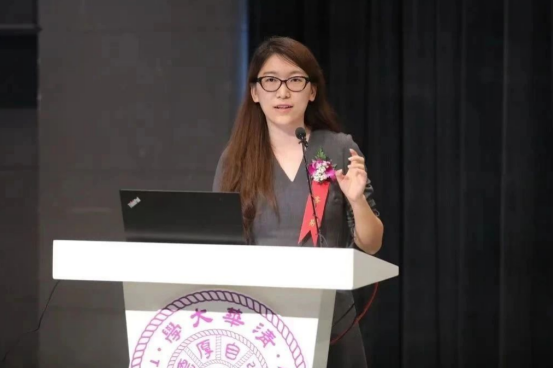Please click the button below to go to our email login page
|
Insisting on “non-mainstream” research directions, like digging gold in the dark, but she succeeded!“I have read many papers, but this one is refreshing.” Due to this “amazing” paper, Yi Lin joined the lab of Steven L. McKnight, an academician of the National Academy of Sciences in USA, and became a postdoctor next year.
In 2020, after postdoctoral works, Yi Lin returned to China and joined Tsinghua University. In 2024, she was selected for Life Sciences Researcher, Asian Young Scientist Fellowship, by virtue of her impressive work and future research program in the field of biophase separation. “Non-mainstream” research becomes a gradual hit. During the first year or two at McKnight’s lab, she felt she was working in a “non-mainstream” direction, and did not bargain on this direction as a hit.
Around 2016, some well-known academic journals published multiple research results in the field of biophase separation, which attracted the attention of many academic peers. These research directions undoubtedly open a new world of life sciences, which, however, do not recognized by many scientists.
For this, the mentor McKnigh said, “Before anyone questions you, you should repeatedly examine and weigh your results and conclusions. Then, you can put forward achievements that stand up to discussion and testing”. Supported and guided by the mentor, Yi Lin gradually devoted to this research direction with full strength. Real gold exists in the dark In 2020, Yi Lin returned to China and selected to work in Tsinghua University. Before completing the post-doctoral work, McKnight told her that be independent and be brave to explore some problems that did not encounter in the lab. “Don’t go to the light place but the dark place. To dig into something in the dark and real gold exists in the dark.” Through deep consideration, Yi Lin ultimately selected to research phase separation in nervous system.
In 2023, the research results obtained under the leadership of Yi Lin’s team were published in Cell. When they knocked out ATXN2 and ATXN2L, the regular 24-hour circadian rhythm in mice could no longer be maintained, and the phase separation of these two proteins plays an extremely critical role in maintaining cellular rhythmic oscillations. The study suggested that the phase separation of ATXN2 and 2L may be an important target for the future treatment of circadian rhythm disorder-related diseases. Only by being sufficiently “Buddhist” can one go further
In Yi Lin, you won’t see the obsession with “what must be done at what age” or the anxiety of being driven by the progress bar of life.
Apart from scientific research, she loves art and enjoys drawing nourishment from books. When asked if she has ever encountered a “low point” in her research work, she laughed and said, “There is no low point, at least not subjectively.” She then added, “The goal of scientific researchers is to understand the most fundamental scientific laws of nature. So we act like detectives, proposing hypotheses, designing experiments, and verifying or refuting hypotheses. The ups and downs and setbacks in the process are all normal. Only by patiently solving one problem after another can we get closer to the truth.”
Due to her personality, even in the field of biophase separation, which is controversial yet fascinating, Yi Lin has never experienced “separation anxiety”. She stated, “In the long run, the rise and fall of any field is a natural law and is quite normal. Being able to persist in the path I believe is right amidst changes and constantly challenge myself to explore more potential is simply fantastic!” |

